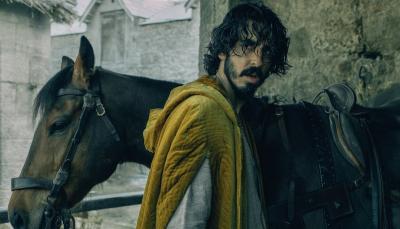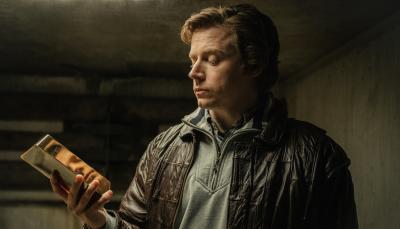'The Green Knight' Is Like No Other Arthurian Movie You've Ever Seen
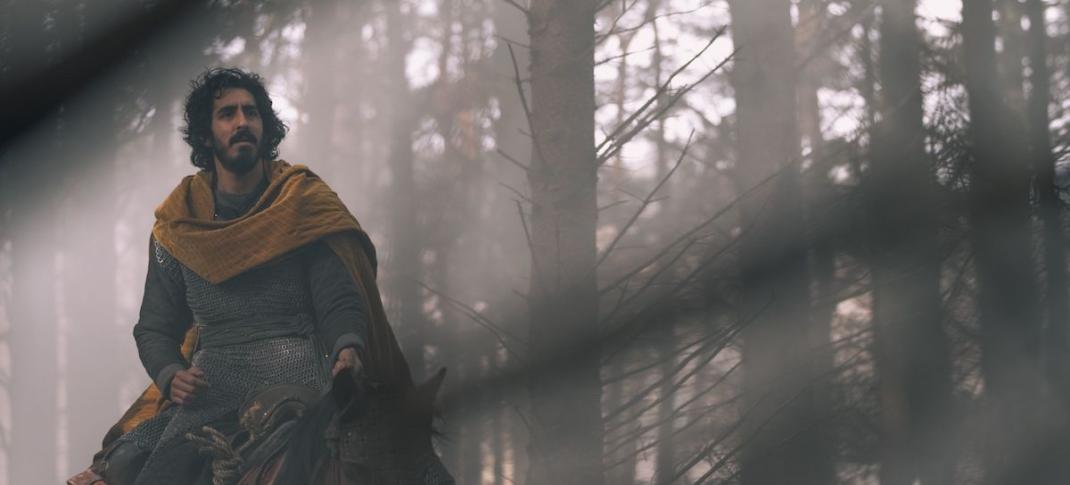
Modern pop culture tends to make only one kind of King Arthur movie. It's usually focused on the king himself and it almost always covers one of two aspects of his story: As a young man embracing his destiny and discovering Excalibur, or as a slightly older version dealing with the discovery of the affair between his wife and best friend. What many people don't always remember is that the world of Arthurian legend is vast. It contains many, many stories and most of them involve characters other than those named Arthur, Guinevere, or Lancelot.
David Lowery's new film The Green Knight is based on the 14th-century medieval alliterative verse poem, Sir Gawain and the Green Knight, a story that follows an adventure by one of Arthur's most famous knights. The original poem, written by an anonymous author whose other surviving works are much more religious in scope, is one of the most famous and incorporates many popular tropes from the period including the beheading game and the exchange of winnings. Yet, are modern audiences still aware of this story?
Well, if they're not, they're about to be. The Green Knight is not just a great Arthurian fantasy movie. It's a great movie, period - a gorgeously filmed and emotionally moving tale about goodness, honor, and heroism, grounded in lush visuals and a career-making turn from star Dev Patel. But if you're looking for a commercial Arthurian tale, this film is not it, though it will certainly delight anyone familiar with the bone-deep strangeness of many of the original medieval tales.
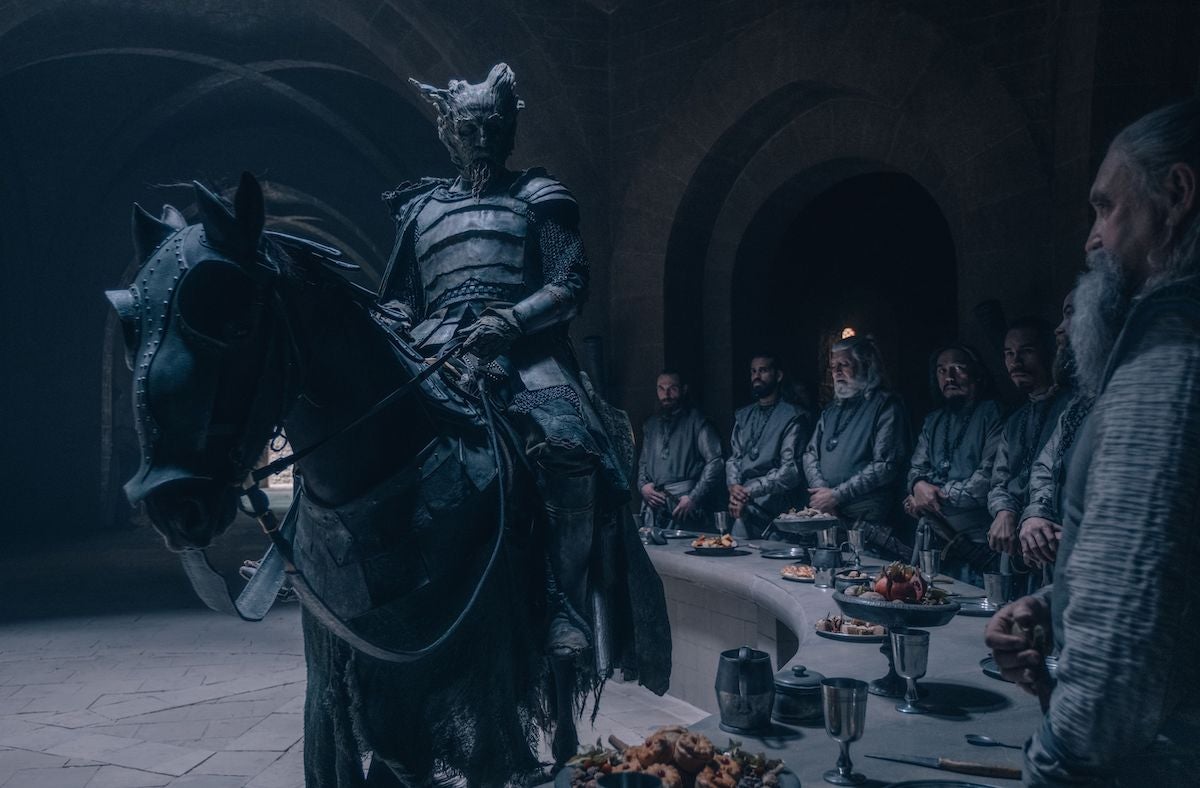
The Green Knight is deeply, interestingly weird - fully content to give its audience almost no guideposts to who anyone is that is not Gawain and focuses more on the moral themes of our hero's journey rather than the specifics of his actual quest. There are talking animals, naked giants who sing haunting songs, ghosts of headless Welsh saints, and more, all connected with the most tenuous of threads. The film often feels wildly otherworldly and yet strangely familiar, an intriguing mix of the folklore and Christian allegory that characterize so many of these original legends.
On the surface, The Green Knight is a simple story. During a Christmas feast at King Arthur's court, a strange Green Knight arrives, who is part man, part...nature creature. (In this case, he essentially looks like an animatronic tree person.) Having heard of the famed Knights of the Round Table, he's come to challenge them to a friendly Christmas game. He'll allow any knight a chance to strike one blow against him, and aware but only on the agreement that he is allowed to return a commensurate blow to that same knight himself precisely one year hence.
Gawain, eager for glory and tales of his own to tell, impetuously volunteers and beheads the Green Knight with a single strike. Unfortunately, he didn't count on the knight's bleeding body rising from the floor and scooping up his severed head as it cackles a reminder that Gawain must come to the Green Chapel in a year's time.
In the original poem, the story is meant to interrogate the loyalty and chivalry of Gawain. Is he an honorable man? Will he keep his word? Or try and undo the bargain he made? Lowery's film complicates things a bit by drastically shifting the sort of man this Gawain is versus the one in the original text. That Gawain is already a knight, known as the flower of chivalry and honor. This version is...not that.
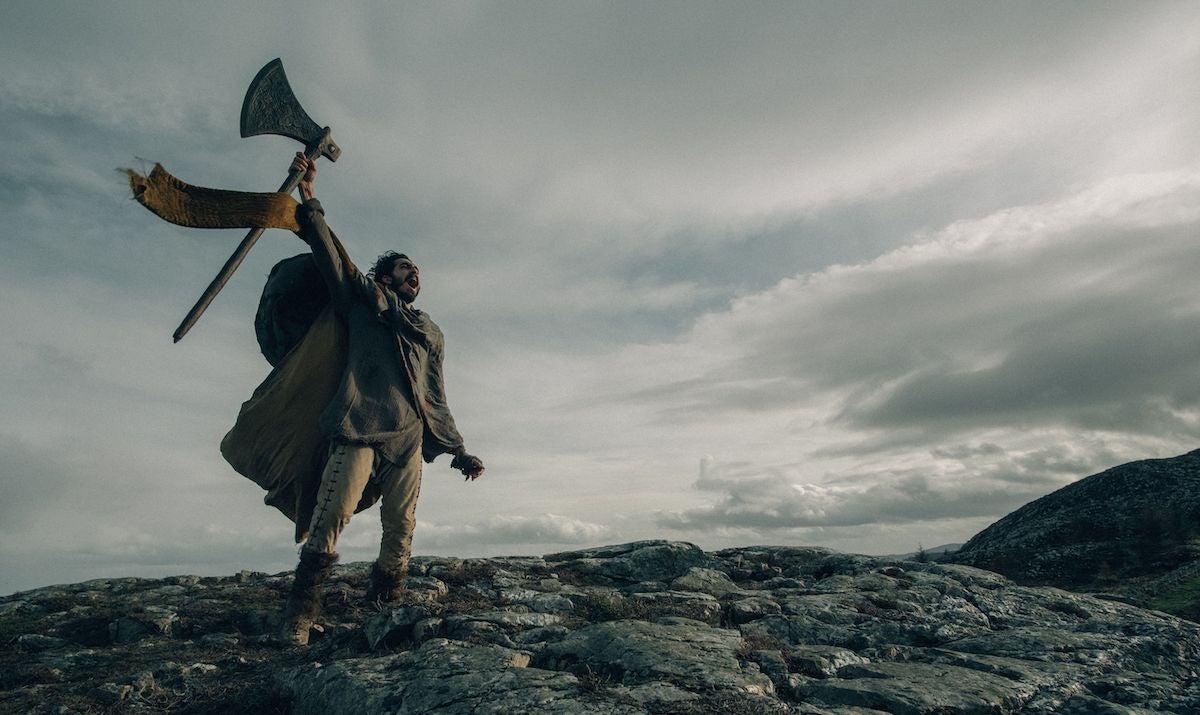
Here, Gawain is reimagined as something of a medieval layabout, an insecure young man who idly dreams of glory but spends most of his time boozing, carousing, and visiting his girlfriend at the local brothel. Caught between the pagan world of his mother, Morgan Le Fay, and the Christian court of his uncle Arthur, Gawain exists in what feels like a state of extended adolescence and arrested development. In many ways, he is also the "green knight" of the film's title, having yet to grow up or do anything worthy of telling at the holiday feast.
The story of Gawain and the Green Knight is a traditional hero's quest, as Gawain travels north to the Green Chapel and the fate that presumably awaits him there. To become a hero - and more importantly, to be honorable - Gawain will have to meet the Green Knight's challenge, and likely have to die in the process. Is this truly the honorable fate, though? That's one of the central questions of the film, which sees our hero both overtly and implicitly wrestle with insecurity, cowardice, and adulterous desire.
There are no easy answers in this story - and little outright satisfaction. Gawain's early run-in with a deceptive thief on a battlefield offers no real closure - just an awkward defeat. His escape from a castle and the overly friendly lord and oversexed lady who both live inside it masks multiple shames - from being a bad guest to betraying his host's trust in the most personal of ways. Even his final confrontation with the Green Knight himself sees us flash forward through a possible future where there is life but little honor and offers a conclusion that's generally left up to viewers to decipher.

Much like the original poem upon which it is based, much of The Green Knight is left up to the audience to decipher. Is the Green Knight a Christ figure, or an avatar of the pagan world Arthur and his knights seek to leave behind? Is green the color of life or death and rot? Characters appear in more than one guise, words have more than one potential meaning, and there are many interpretations for many of the things we see onscreen.
Lowery's film is a visual feast, from lush countrysides and fetid battlefields to the shambling, rough-hewn body of the Green Knight himself and the lush, celestial lighting that seems to bathe Arthur wherever he goes, this movie is full of images that will stay with you for a long time after the final credits roll. Even its music is remarkable, alternately oppressive and delicate by turns and frequently framing scenes in much the same way the alliterative bob and wheel style of the original poem might have.
All in all, The Green Knight is one of the first truly must-see films of 2021, a story that asks - and trusts - its audience to drawn their own conclusions in ways that few box office releases do these days. Gawain's journey may or may not conclude by the time the film ends, but we will likely (hopefully?) remember this trip to the Green Chapel for a long time to come.



